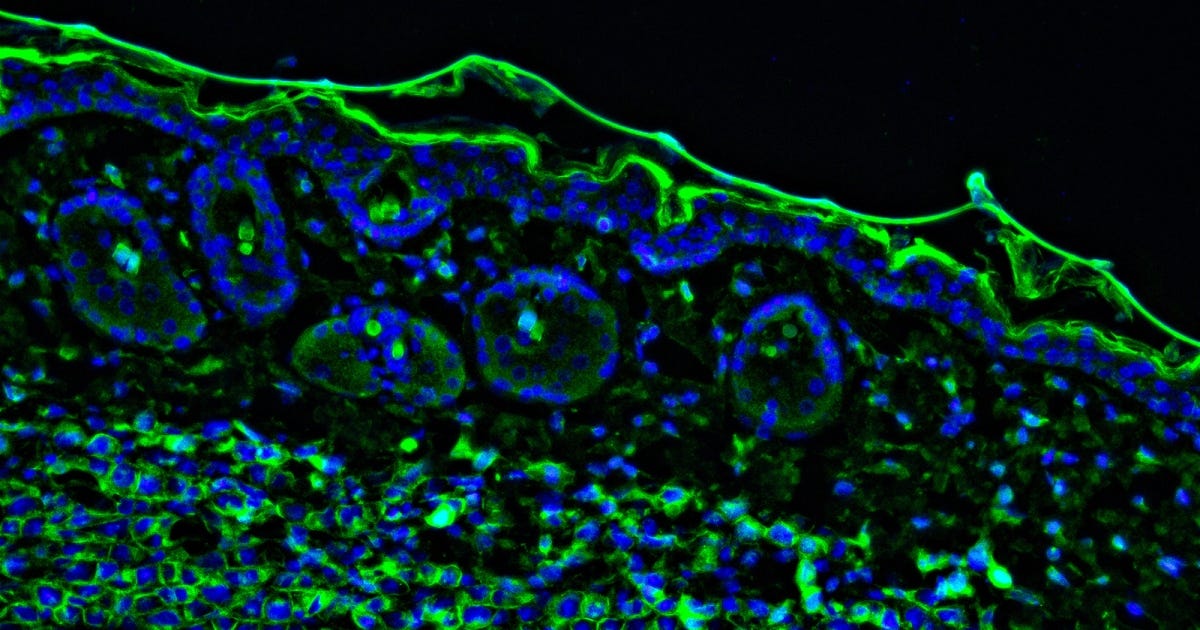The shot is designed to stop skin cancer from returning after surgery.
By Kristin Houser
October 23, 2022
Site Editor:
Joaquim Cardoso MSc.
health transformation — center of excellence
October 24, 2022
Pharma giant Merck has paid Moderna $250 million to co-develop and commercialize a promising personalized cancer vaccine based on its mRNA technology.
The background:
In 2016, pharma giant Merck gave Moderna $200 million to research and develop personalized cancer vaccines based on mRNA.
At the time, it was a big bet — mRNA technology had yet to be translated into any approved vaccine.
Part of the original agreement specified that if Moderna could complete proof-of-concept studies of mRNA-based personalized cancer vaccines in humans, Merck had the option to pay an undisclosed amount to co-develop and commercialize the shots with Moderna.
Since then, mRNA has proven itself with the development of COVID-19 vaccines, and many other vaccines are in development.
And now, based on that success, they’re moving ahead with cancer vaccines, too.
In 2016, pharma giant Merck gave Moderna $200 million to research and develop personalized cancer vaccines based on mRNA.
Since then, mRNA has proven itself with the development of COVID-19 vaccines, and many other vaccines are in development.
Most vaccines are mass produced, but Moderna’s cancer vaccine is personalized for each patient.

What’s new?
Merck is now exercising its option on mRNA-4157, a personalized cancer vaccine in a phase 2 clinical trial for skin cancer.
It’s being studied in combination with Merck’s cancer treatment Keytruda, a humanized monoclonal antibody.
It’s being studied in combination with Merck’s cancer treatment Keytruda, a humanized monoclonal antibody.
A personalized cancer vaccine:
Moderna’s cancer vaccine works differently than most vaccines because it’s designed to treat an existing disease rather than prevent it entirely.
It’s also personalized for each patient, while other shots are typically mass produced and distributed to the population.
To create each vaccine, Moderna takes a sample of a patient’s tumor. It then uses genetic sequencing technology to identify proteins in the tissue called “ neoantigens.”
These proteins are found only on the surface of cancer cells, and they are unique to each person’s tumor.
Moderna then uses its mRNA technology to create a vaccine that instructs cells to make up to 34 of the cancer’s specific neoantigens, which are shown off to immune cells as potential targets.
The idea is that this will trigger an immune response against the neoantigens, helping the immune system identify and attack cancerous cells.
Given Merck’s new investment in the vaccine, it seems reasonable to expect positive trial results.
Moderna then uses its mRNA technology to create a vaccine that instructs cells to make up to 34 of the cancer’s specific neoantigens, which are shown off to immune cells as potential targets.

Looking ahead:
For Moderna’s ongoing phase 2 trial of mRNA-4157, 157 patients with high-risk melanoma had their tumors removed via surgery.
Some of the patients were then given nine doses of a personalized cancer vaccine and a dose of Keytruda every three weeks for approximately one year or until their melanoma came back.
The rest were given just a dose of Keytruda every three weeks for one year.
For Moderna’s ongoing phase 2 trial of mRNA-4157, 157 patients with high-risk melanoma had their tumors removed via surgery.
The trial’s primary endpoint is recurrence-free survival, and given Merck’s new investment in the vaccine, it seems reasonable to expect positive results.
“With data expected this quarter on [personalized cancer vaccine], we continue to be excited about the future and the impact mRNA can have as a new treatment paradigm in the management of cancer,” said Moderna President Stephen Hoge.
Originally published at https://www.freethink.com on October 23, 2022.
Names mentioned:
Moderna President Stephen Hoge.












